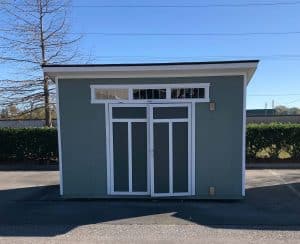 When wiring electrical for sheds or garages, it is important to know that it takes some planning beforehand to ensure positive results. Whether you want a workshop that is fully functional or a light for your shed to help you see in dark situations, there are advantages when you add electricity to the garage or shed. Wiring garage for electrical? You need to be prepared for a task that is seemingly simple but requires a bit of experience and knowledge to be done correctly.
When wiring electrical for sheds or garages, it is important to know that it takes some planning beforehand to ensure positive results. Whether you want a workshop that is fully functional or a light for your shed to help you see in dark situations, there are advantages when you add electricity to the garage or shed. Wiring garage for electrical? You need to be prepared for a task that is seemingly simple but requires a bit of experience and knowledge to be done correctly.
Beginning to Plan
The first step for wiring a garage or shed that is outdoor is to plan. You need to know what your energy requirements are, meaning, you have to know what demand your intended tools or fixtures will have on electricity. First, it is best to make a list of everything you plan to wire for. Account for all outlets, switches, and tools/appliances that you intend to add to your power requirements.
When it comes to outdoor sheds, it is important to ask yourself what it is used for. You will find that the requirements for shed wiring are a lot different than what you will need for a workshop. Professional electricians believe that a simple line to the shed is a simple DIY project. However, wiring for a workshop is a totally different process and requires much more planning. If you have intentions of using heavy juice-sucking devices, such as welders and air compressors, you need to consider this in your plans.
What Tools You Are Using
When planning, it is wise to consider what tools you will be running. While some tools and appliances can run on 110v power, you will find that heavy power using tools require 220v. You have to know this information to accurately and safely install the circuits needed to manage the load. It is best to ask an electrician to check your circuits, so you can find out if they are heavy enough. It is important to know that circuits can only handle amps to a limit.
Know the tools you plan to use, and you can plan your workshop with the appropriate types of outlets and wiring.
Know What The Panel Can Handle
While most of the modern homes have a service of 200 amps, which should be more than sufficient in running the household as well as adding lights to a storage shed, some of them will require a sub-panel to be wired. Workshops with tools and temperature units require you to add up the amps needed to ensure your panel can handle the addition. It is important to consult an electrician if you are not familiar with electrical work or installation.
The best way to plan any kind of addiction to a household that will require electricity is to consult Professional Electric about your current needs, and expected needs. We are able to determine your best course of action. You can save yourself a headache and even have an electrician perform this service for you, to ensure it is done correctly.